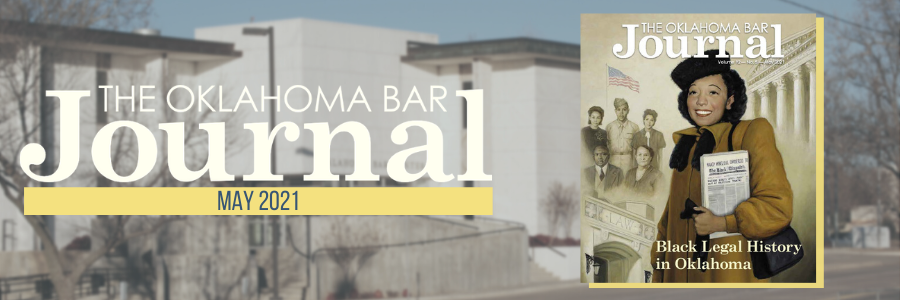Oklahoma Bar Journal
The Back Page | A Continued Call for making Oklahoma's Legal Profession More Inclusive
By Telana McCullough
Appreciate Black attorneys as individuals who have unique talents, goals and purposes. A Black attorney who is given support and resources will be in a position to offer an even higher caliber work.

Telana McCullough. Photo provided.
Black legal history is full of brilliance, tenacity and copious amounts of courage. Black attorneys have and continue to overcome immense challenges to make our community more just. However, this progress is often hindered by the actions of fellow legal practitioners. Unfortunately, even though Black attorneys today may be counted in the diversity number at a law office, it does not mean those Black attorneys' voices are necessarily valued and included in office dynamics. The things legal offices can do to make work environments more inclusive are extensive, but here are a few things to start with:
Check Implicit Bias
Black attorneys often face hostilities stemming from unchecked implicit bias that leads to toxic work environments. Implicit bias refers to the unconscious attitudes or stereotypes that affect our understanding, actions and decisions.1 Implicit bias can cause colleagues to unknowingly treat and view Black attorneys more harshly by unconsciously associating Black attorneys with negative stereotypes absorbed from society. The negative associations often come out in casual statements and actions called microaggressions2 that slowly kill diversity efforts. To begin to address implicit bias, an office can encourage employees to take the Harvard Implicit Bias Test3 and then require employees to attend training on implicit bias.4
Connect to Humanity in Others
Office leaders should be intentional about connecting with all employees. Make sure the Black attorneys' voices are heard, valued and included. Appreciate Black attorneys as individuals who have unique talents, goals and purposes. A Black attorney who is given support and resources will be in a position to offer an even higher caliber work. Initially, it might be harder to connect with those who appear to be different, but there will be exposure to a new and valuable perspective amongst many other benefits. This type of connection starts with honest conversations about anti-Black racism in the legal profession.5
Progress Over Perfection
Working in an environment where implicit bias goes unchecked and connection is not highly valued can cause Black attorneys to seek other job opportunities. In searching for a better work environment, there is a desire for inclusive progress. Starting the work of diversity and inclusion does not require perfect steps. In inclusive progress, there is a commitment to diversity and inclusion that makes the office stronger with every lesson learned.
Do not hide racial issues that come up at an office. Have open conversations about the problem and find a solution that includes all of the diverse voices surrounding a table. Do the work to make sure Black attorneys and judges are given the same chance, grace and promotion opportunities given to white legal practitioners. This diverse and inclusive work environment gives Black attorneys the space needed to grow into stronger legal practitioners who continue to make more outstanding Black legal history.
Telana McCullough chairs the OBA Diversity Committee and is a staff attorney at the Oklahoma State Department of Education.
Return to the May Oklahoma Bar Journal.
1.kirwaninstitute.osu.edu/article/understanding-implicit-bias.
2. www.uua.org/sites/live-new.uua.org/files/microaggressions_by_derald_wing_sue_ph.d._.pdf.
3. implicit.harvard.edu/implicit/takeatouchtest.html.
4. www.americanbar.org/groups/litigation/initiatives/task-force-implicit-bias.
5.www.americanbar.org/groups/diversity/resources/black_lawyers_in_america_toolkit.
Originally published in the Oklahoma Bar Journal – OBJ 92 Vol 5 (May 2021)

